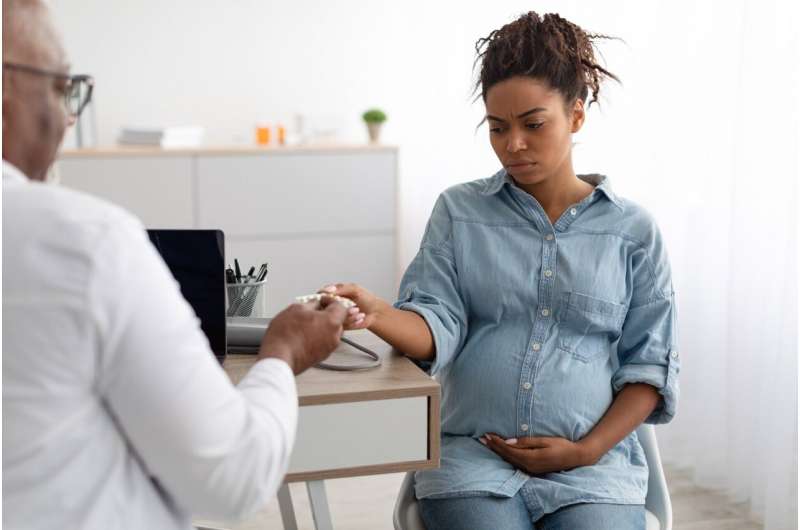
Many women are dissatisfied with the state of U.S. maternal health care, but a major new poll shows that most Americans don’t understand how badly the country lags behind other rich countries in this area.
Only about 2 in 5 (42%) women who are currently pregnant or have ever been pregnant felt strongly about having access to the best possible medical care during pregnancy, down significantly from 50% in 2022, according to the second annual research by The Harris Poll into the state of maternal health care.
Women reported similar figures about their health care birth. About 44% felt they had access to the best possible medical care during childbirth, up from 52% in 2022, the results showed.
“These results confirm that pregnancy and birth care in the United States is on the decline, and that there is much room for improvement,” said Christina Lojek, media and communications research manager at The Harris Poll.
Despite this, Americans would still likely rate U.S. maternal care better than it actually is, compared to that of other high-income countries, the poll found.
For example, only about 1 in 4 (29%) Americans surveyed correctly stated that the United States “does not” have one of the lowest infant mortality rates among developed countries.
In fact, the United States has the highest infant mortality rate among rich countries, with 5.4 deaths per 1,000 live births, a 2022 Commonwealth Fund report found. report shows. The next leading countries are Canada (4.5 infant mortality), New Zealand (4.3), the Netherlands (3.8) and the United Kingdom (3.6).
Likewise, only about 2 in 5 (40%) Americans knew that the country has one of the highest maternal mortality rates.
According to a Commonwealth Fund, maternal mortality rates in the United States are double and sometimes even triple those in other wealthy countries report released earlier this week.
U.S. women had a maternal mortality rate from complications of pregnancy and childbirth of 22 deaths per 100,000 live births in 2022, the report said. The mortality rate among black American women was even worse, with nearly 50 deaths per 100,000 live births.
But only half of all Americans (50%) and just 57% of Black Americans know that Black women are nearly three times as likely as white women to die from pregnancy-related causes, the poll found.
“Overall, Americans are poorly informed about childbirth in the U.S., particularly the risks and complications, especially for Black women,” the poll found.
The poll also found that many American women develop health problems during pregnancy that require proper care.
Nearly 3 in 5 (57%) women who are or have been pregnant said they were diagnosed with a medical condition between conception and postpartum. That includes about 1 in 3 (32%) who said they had been diagnosed with anxiety, depression or another mental health condition.
Young women aged 18 to 34 were more than twice as likely as women aged 35 and over to be diagnosed with a mental health problem (61% versus 26%), the survey results showed.
About 1 in 5 (21%) women who sought help for their mental health problems said they did not receive care or were unhappy with the care they received.
“So many women who have been pregnant have dealt with mental health issues during pregnancy, and it’s a little shocking to hear that 1 in 5 were left untreated or unhappy with the care they received,” Lojek said.
Overall, the poll found that the United States has a poor record of giving pregnant women the health care and support they need.
More than half of women (53%) believed that women like them have to fight to get the medical care they need, the survey results showed.
Women between the ages of 18 and 44 were more likely than women aged 45 and older to feel this way (67% vs. 42%).
“Based on the results of our survey, it is clear that we as a country need to make access to pregnancy, birth and postpartum care, as well as the best possible care, easier for all women, and that improving care should focus on patient education. and support to ensure women achieve safer and better outcomes,” said Lojek.
The poll involved 2,061 U.S. adults who were surveyed between April 2 and April 4, 2024. Of these, 1,116 were women and 692 were women who were pregnant or had given birth. The margin of error is plus or minus 2.5 percentage points.
More information:
The March of Dimes has more to offer maternal and child health in the United States.
Copyright © 2024 Health Day. All rights reserved.
Quote: Many US women unhappy with maternal health care, polls show (2024, June 6), retrieved June 6, 2024 from https://medicalxpress.com/news/2024-06-women-unhappy-maternal-health -poll.html
This document is copyrighted. Except for fair dealing purposes for the purpose of private study or research, no part may be reproduced without written permission. The content is provided for informational purposes only.
 Healthy Famz Healthy Family News essential tips for a healthy family. Explore practical advice to keep your family happy and healthy.
Healthy Famz Healthy Family News essential tips for a healthy family. Explore practical advice to keep your family happy and healthy.


